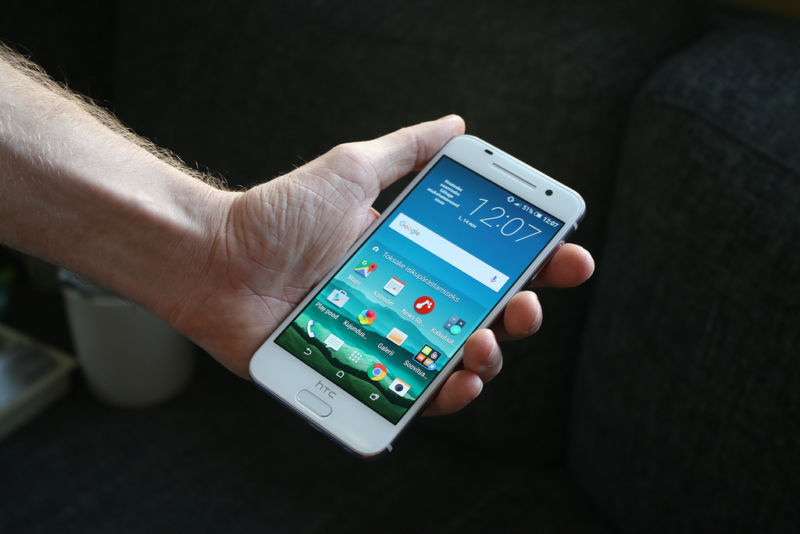
Yesterday, dozens of state attorneys general sued Google on antitrust grounds, alleging that the company worked to “preemptively quash” competing app stores (most notably the Samsung Galaxy Store) and maintain its monopoly on Android app distribution.
The lawsuit alleges that Google engaged in a range of anticompetitive practices, including offering large app developers profit-sharing agreements in exchange for exclusivity, creating unnecessary hurdles for sideloading, and attempting “to buy off Samsung to limit competition from the Samsung Galaxy app store.”
Google says the lawsuit is “meritless.” “It’s strange that a group of state attorneys general chose to file a lawsuit attacking a system that provides more openness and choice than others,” Wilson White, Google’s senior director of public policy, wrote in a blog post.
Yet those Google claims about Android’s openness are part of what drew the attention of the attorneys general. “Google promised repeatedly that Android would be the basis for an ‘open’ ecosystem in which industry participants could freely compete,” they wrote in the complaint. “Google has not kept its word. Instead, Google has taken steps to close the ecosystem from competition and insert itself as the middleman between app developers and consumers.”
Some of the allegations against Google will sound familiar to anyone who has been following Epic’s lawsuit against Apple. The complaint says that Google’s 30 percent commission on app sales is a monopoly rent that unfairly burdens both consumers and developers. The complaint also alleges that forcing app developers to use Google Play Billing for in-app purchases is “unduly restrictive and anticompetitive.”
Buying off Samsung
While allegations about commission rates are a key part of the lawsuit, the attorneys general spend a lot of time dissecting Google’s alleged efforts to keep competing app stores at bay, especially Samsung’s Galaxy Store. “Google was willing to offer Samsung myriad benefits and concessions in order to prevent Samsung’s Galaxy Store from being built out,” it says.
Though the Galaxy Store was not nearly as popular as the Play Store, Google feared that Samsung would develop into a strong competitor, especially since the company sells a majority of high-end Android phones in the US. Google was particularly concerned that Samsung would get an exclusive game for the store to attract more users, which Samsung did in 2018 when it partnered with Epic to launch Fortnite exclusively on the Galaxy Store. That move alone cost Google millions of dollars in revenue.
Samsung apparently pursued other exclusives with “popular” app developers, though their names are redacted in the filing. If the Galaxy Store had gained traction, the lawsuit says the competitive pressure would have threatened the 30 percent commissions Google charged other developers.
To quash the Galaxy Store, the lawsuit claims that Google offered Samsung exclusive game content, deals, and events on the Google Play Store and on YouTube. It even offered to “white label” the Play Store as the Galaxy Store so Samsung could maintain its branding.
In negotiations with Samsung, Google apparently preferred to pay a lump sum for any revenue share rather than a percentage, which would reveal the size of the Play Store. “Google was aware that if Samsung actually saw Google’s returns from control of the Google Play Store, it would be harder to keep Samsung from competing in the app distribution market,” the lawsuit states.
Sweetening the deals
Revenue share was apparently a frequently used tactic. Earlier in Android’s history, just after its launch, Google approached device manufacturers and network operators, which had been mulling their own app stores on Android phones. Google’s goal, the lawsuit says, was to “discourage the OEMs and MNOs from creating competing app stores.” To do so, Google offered manufacturers and network operators a share of revenue from advertising and the app store in exchange for agreeing to a number of restrictions that helped ensure Google’s dominance over the Android platform, the suit says. These include commitments that forbid companies from forking Android and a Mobile Application Distribution Agreement, which allowed companies to use Google’s proprietary apps and APIs on Android devices. The MADA was also a focus of a European Commission antitrust investigation a few years ago.
This new lawsuit also says that companies that accept revenue shares have to place the Play Store on the home screen, ensure that it can’t be deleted, and promise that another app store can’t be placed more prominently.
Google also leveraged its dominance in search and advertising to benefit the Play Store, the attorneys general claim. Apps sold in stores other than the Play Store cannot buy advertising on Google search results pages, YouTube, and the Google Display Network. Because of those and other efforts, the Google Play Store distributes more than 90 percent of all Android apps, the lawsuit says.
https://arstechnica.com/?p=1778821

